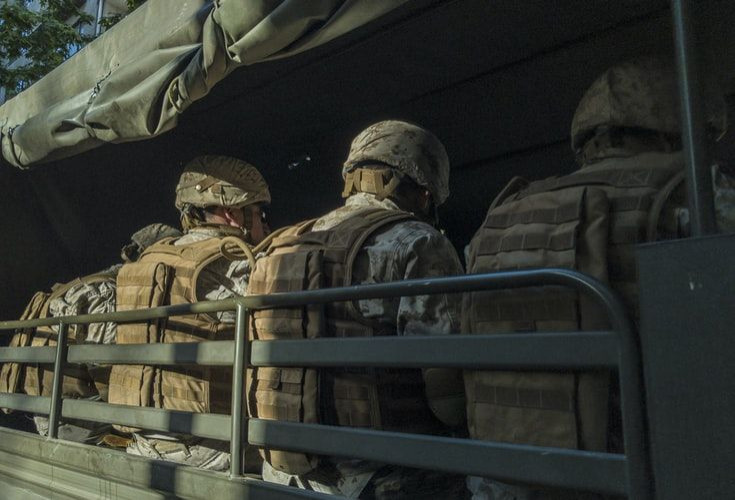
The Trump administration is considering a significant escalation of military presence along the U.S.-Mexico border, potentially deploying as many as 10,000 soldiers to boost its efforts to crack down on unlawful immigration. An internal memo from Customs and Border Protection (CBP), obtained by CBS News, outlines plans to dramatically increase border enforcement and deportations.
President Donald Trump's executive order declaring a national emergency at the southern border includes directing the Department of Defense (DoD) to support the Department of Homeland Security (DHS) in taking full operational control of the border, including building barriers to block migrants and assisting CBP with its mission. White House Press Secretary Karoline Leavitt confirmed on Wednesday the first deployment of 1,500 active duty troops to the border, who will join the some 2,200 National Guard and Reserve forces already there.
The memo, dated January 21, details a potential surge of around 10,000 soldiers to the southern border as part of an "unrestrained request" for military assistance, including providing additional resources, personnel, and technology to CBP. The memo also discusses the possibility of using DoD bases as temporary detention facilities for migrants awaiting deportation.
The document also lays out plans to expand the detention capacity of Immigration and Customs Enforcement (ICE), saying the agency is requesting 14 new facilities to hold up to 1,000 detainees each, plus four larger facilities capable of housing up to 10,000 migrants.
During a press briefing, a senior U.S. military official said the initial 1,500-troop deployment would consist of 1,000 Army personnel and 500 Marines, along with helicopters, to assist CBP in building border barriers and managing unlawful crossings. The official clarified that the military would not engage in law enforcement activities.
The Department of Defense also announced plans to provide military airlift support for deportation flights. DHS will provide in-flight law enforcement to oversee these deportations.
The move represents a significant expansion of military involvement in border enforcement, which has traditionally been limited to operational and administrative roles.
Trump has also revoked decade-long protections that barred immigration enforcement in schools, hospitals, churches, and other designated "sensitive areas", marking a major shift in U.S. immigration policy. Raids are expected to begin immediately.
New polling indicates that a majority of Americans oppose enforcement actions in those locations. The survey, conducted by The Associated Press-NORC Center for Public Affairs Research, revealed that most Americans agree on the importance of border security and targeted deportations. Roughly half of U.S. adults consider enhancing border security a high priority, and the majority support deporting immigrants convicted of violent crimes.
However, consensus weakens when it comes to broader measures, such as mass deportations or arrests in the aforementioned sensitive areas, the Associated Press reported. Only about 20% of respondents favored such actions, and roughly 60% opposed them. Even among Republicans, fewer than half expressed support for these measures.
Meanwhile, among the steps Mexico is taking to prepare for the impact of Trump's mass deportations are tent camps for migrant featuring attention centers along its northern border. Components for the first of nine centers arrived on Tuesday at El Punto in north Juarez, a location near the Rio Grande. This center, expected to be operational by the end of the week, will provide essential services such as food, medical checkups, temporary lodging, and a $98 debit card to help deported Mexican nationals return to their home states, as informed by the Interior Secretary Rosa Icela Rodriguez.
Other centers are planned for Tijuana, Nuevo Laredo, Reynosa, and Matamoros, among other border cities. The initiative comes as Trump is set to enforce his promises of large-scale deportations and reintroduce the "Remain in Mexico" policy. Although Mexico's government has not agreed to this policy, President Claudia Sheinbaum emphasized that Mexico will assist migrants caught in this situation for humanitarian reasons.
© 2025 Latin Times. All rights reserved. Do not reproduce without permission.







